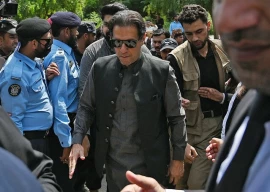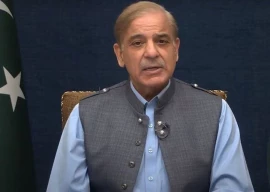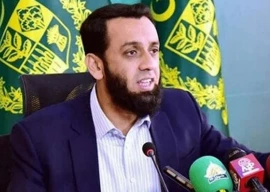
The government is all set to revamp the national Expanded Programme on Immunisation (EPI) to improve and strengthen coverage, which so far has been unsatisfactory.
EPI National Manager Dr Rana Muhammad Safdar, while talking to The Express Tribune said the government was currently working on the plan.
“The government with its international partners, provincial health departments along with the federal capital, Fata and Azad Kashmir (AJK) authorities will complete strategic planning regarding revamping of the programme by mid of February,” he said.
Following this, he added, the federal and provincial governments will make their separate projects (PC-1) in March in consensus with all stakeholders according to which fresh hiring will be done to address the shortage of staff and other related issues.
“This will help improve the coverage throughout the country,” Rana said.
Meanwhile, an official at the Ministry of National Health Services, Regulation and Coordination (NHSRC) who wished not to be named, said that for the past ten years the EPI programme was suffering due to the government’s ignorance.
“The results are in front of everyone and it is being clearly revealed by the Pakistan Demographic and Health Survey (PDHS) 2012-13,” the official said.
“The measles outbreak in 2012-13 which claimed over 300 lives clearly reflects how much the government is committed towards ensuring that every child under the age of five is fully vaccinated against preventable diseases,” he added.
The preliminary report titled ‘Comparison between findings in PDHS 2006-07 and 2012-13’ conducted by National Institute of Population Studies (NIPS), paints a gloomy picture of the overall routine immunisation coverage which has increased from 47.3 per cent in 2006-07 to a mere 53.8 per cent in 2012-13.
The report revealed that Punjab and Khyber-Pakhtunkhwa (K-P) showed slight improvements in their routine immunisation coverage during the time period, but there had been an alarming decline in Sindh and Balochistan.
In Punjab, the percentage of completely immunised children has increased from 52.6 per cent to 65.6 per cent, while in K-P the figure has increased from 46.9 per cent to 52.7 per cent. However, in Sindh, it has dropped from 37 per cent to 29.1 per cent and in Balochistan, from 35.2 per cent to 16.4 per cent, according to the report.
“The reason behind this slow progress is that the government and all its international partners remained focused on eradicating polio from the country due to which they did not pay much heed to prevent other diseases,” said the official.
He also said that throughout the year, all vaccinators and female health workers were engaged in immunising children against polio because of which they could not provide their services for vaccinating against other diseases.
Meanwhile, the official said, the federal EPI was suffering due to acute shortage of staff as currently over 90 positions were vacant prior to the devolution of the health ministry under the 18th Amendment. These positions include assistant director operations, training, monitoring evaluation and field officers among others.
“Currently there are only four to five people who are working at the federal EPI whereas it lacks staff who could do field work, monitor and evaluate the coverage of routine immunisation,” said the official.
Published in The Express Tribune, January 30th, 2014.



1725030039-0/Untitled-design-(2)1725030039-0-165x106.webp)
1725366721-0/kyle-(1)1725366721-0-165x106.webp)



1732696613-0/BeFunk_§_]__-(59)1732696613-0.jpg)
1732622842-0/Express-Tribune-(9)1732622842-0-270x192.webp)







COMMENTS
Comments are moderated and generally will be posted if they are on-topic and not abusive.
For more information, please see our Comments FAQ